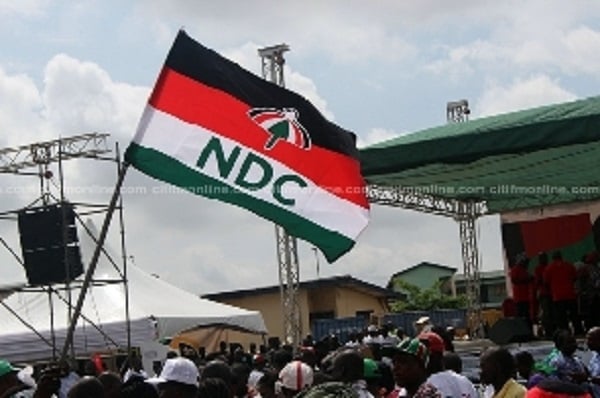The National Democratic Congress (NDC) is gearing up for the December general elections with a substantial plan to deploy over 600 legal and accounting professionals as agents and monitors across the Ashanti region. This strategy aims to ensure the integrity of the electoral process by safeguarding votes and enhancing transparency. George Loh, the NDC’s Deputy Director of Legal Affairs, shared these plans during the campaign launch for the Oforikrom Constituency. He underscored the party’s commitment to countering any attempts of vote manipulation that may be orchestrated by the governing New Patriotic Party (NPP), highlighting the high stakes involved in this election. Mr. Loh emphasized a zero-tolerance approach to electoral malpractices with a resolute statement of retaliation against any perceived threats to their electoral success, indicating a readiness to address the situation ‘boot for boot and bullet for bullet’.
Further reinforcing the NDC’s strategy, Dr. Frank Amoakohene, the party’s Ashanti Regional Secretary, expressed confidence in the party’s potential to sweep all parliamentary seats in the region. This ambitious goal underlines the NDC’s determination to reclaim territories historically held by the NPP, such as the Oforikrom constituency. This area has historically been a stronghold for the NPP, but the NDC is clearly motivated to shift local sentiment in their favor. The proactive presence of 600 legal and accounting professionals is a clear indication of the NDC’s focus on combating any fraudulent practices and securing votes to ensure a fair contest in the elections.
Ahmed Anwel Sadat, the NDC’s Parliamentary Candidate for Oforikrom, has also expressed strong optimism regarding his candidacy and the potential for a shift in voter sentiment. Citing dissatisfaction with the NPP incumbents, Mr. Sadat argues that the current political climate may favor the NDC, suggesting a growing discontentment among the electorate. His assertions reflect a broader sentiment that voters may be re-evaluating their allegiances and could be swayed by the NDC’s campaign efforts and promises. This sentiment is crucial as it encapsulates the heart of electoral politics, where public opinion plays a pivotal role in determining electoral outcomes.
The NDC’s thorough preparation involving the deployment of legal and financial professionals suggests a serious commitment to electoral integrity, a move that can be interpreted as premised on experiences from past elections where allegations of fraud and irregularities emerged. This level of vigilance is essential, particularly in regions where competition is intense, and historical voting patterns may create an aura of inevitability in favor of the incumbents. By mobilizing such a substantial force, the NDC not only aims to monitor the elections but also seeks to create a deterrent against potential malpractice by their opponents.
In addition to monitoring the elections, the focus is also on candidate visibility and public engagement. The NDC recognizes that while having a robust monitoring strategy is crucial, it must also connect with the electorate at a personal level. The campaign for Oforikrom, spearheaded by Sadat, is designed to resonate with local concerns and issues that voters face. It reflects a strategic shift toward a more grassroots approach, appealing directly to the populace by addressing their grievances and presenting viable solutions. This multifaceted strategy balances vigilance with interpersonal outreach, embodying an effective campaign ethos that emphasizes both accountability and representation.
Overall, the NDC’s mobilization of over 600 professionals for election monitoring in the Ashanti region signifies a calculated move to safeguard against electoral malpractice and ensure legitimacy in the electoral process. Coupled with the party’s renewed focus on winning over the electorate through responsive and engaging campaigns, the NDC is poised to challenge the long-standing dominance of the NPP in the region. This development not only enriches the electoral landscape with a dynamic contest but also highlights the critical importance of transparency, public engagement, and vigilance in maintaining the integrity of democratic processes. With the stakes high and the political atmosphere charged, the December elections promise to be a significant event that will shape the future political landscape of the Ashanti region and Ghana at large.














